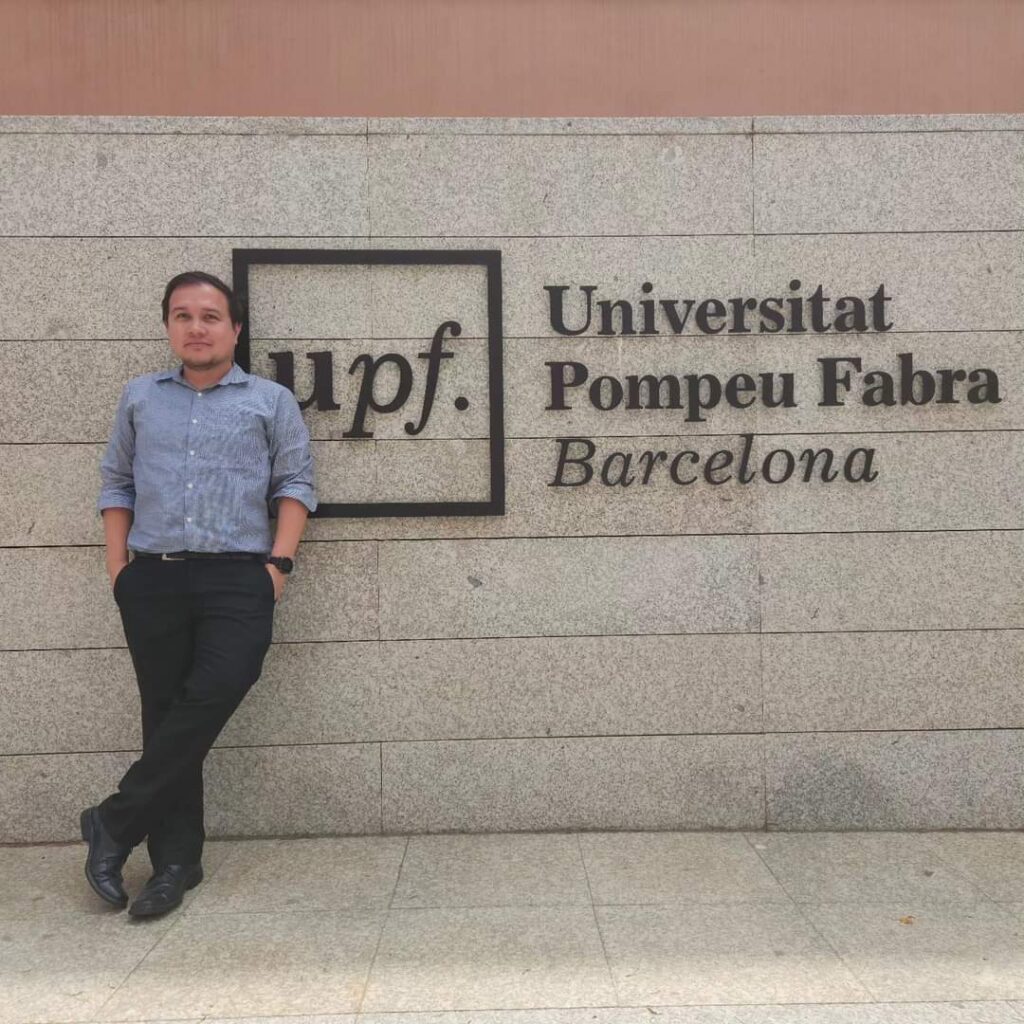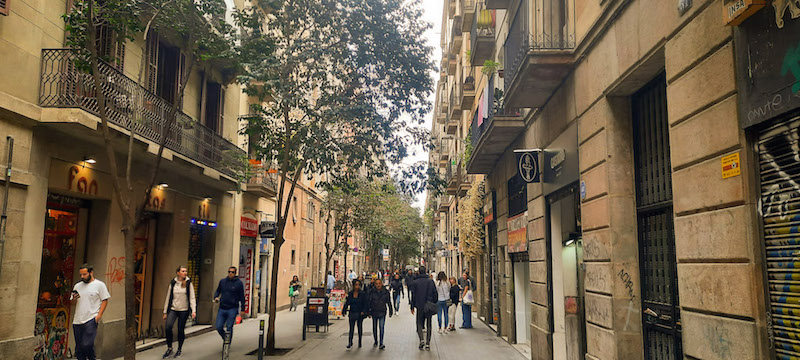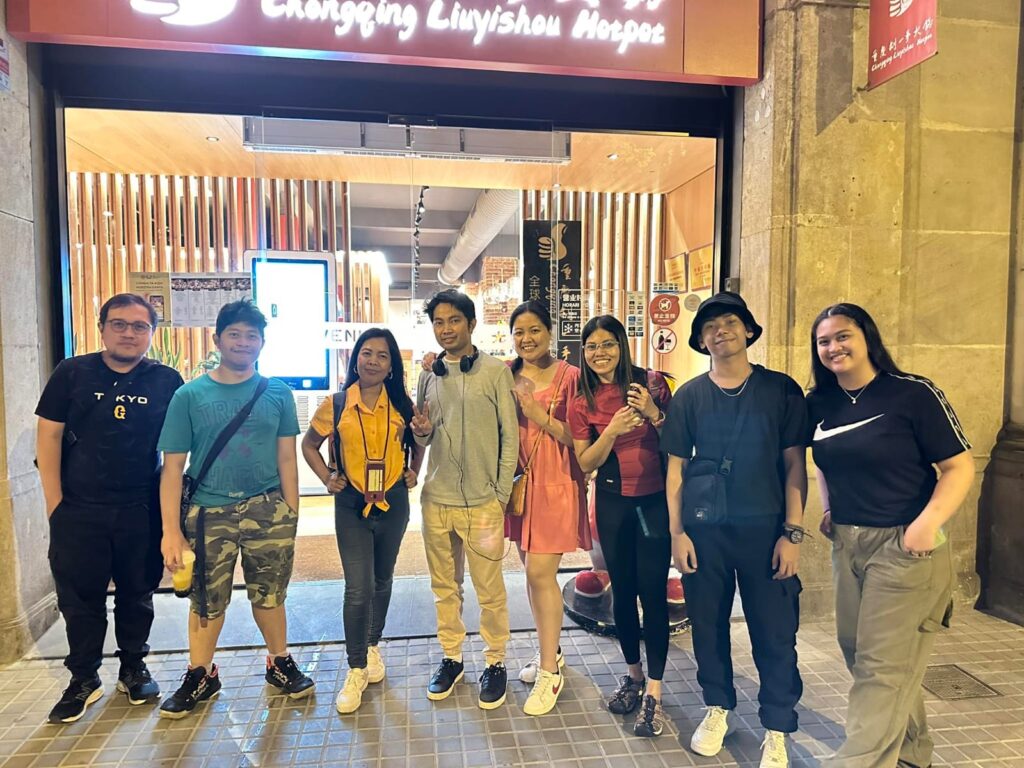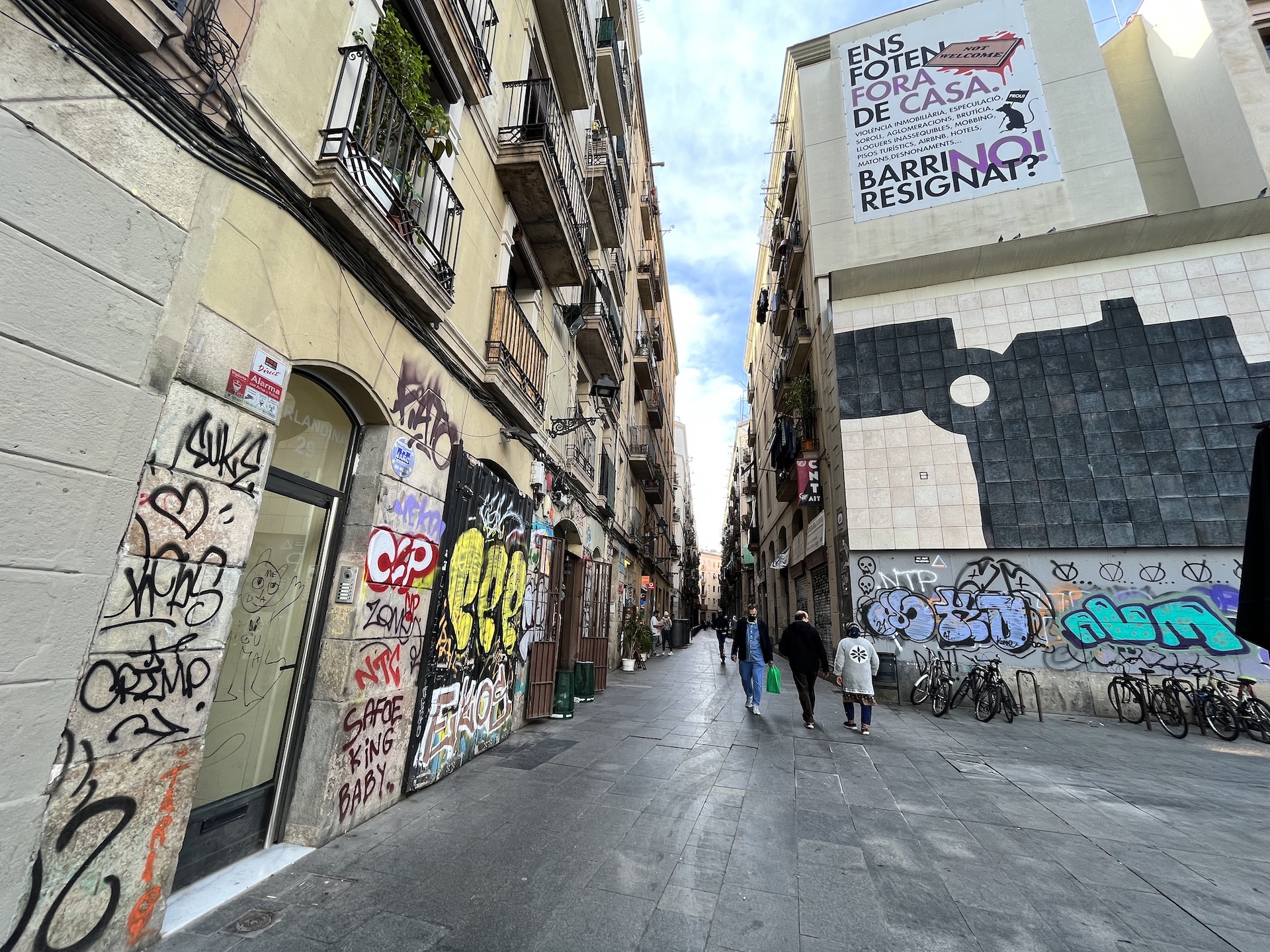What a visitng Filipino researcher learned while living with Filipinos in Raval, Barcelona, often referred to as the “silent community”.
It was a cold autumn night in Raval, Barcelona. I was walking aimlessly along Carrer de Joaquin Costa and my attention was caught by a warren of multi-cultural businesses owned mostly by Chinese and Pakistani nationals, some of which have Filipinos working for them. Across the street, I heard someone yell ‘ulam’.
There are not a lot of Filipino businesses in Raval; there is a slew of Pinoy restaurants or remittance centers, one or two supermercado or grocery shops, a printing shop, a travel agency and some beauty parlors. Walking past the Pinoy-owned supermercado, I spotted some kababayans posing as ‘preachers’ asking for donations for a religious organization (whose leader was grilled by the Senate lately) that has connections with the political elite in the Philippines. Trying to entice our fellow kababayans there to join their faith to access their connections and network in Barcelona.
Farther away, I walked towards the dark and gritty streets that traverse Teatro Goya and Avinguda Sant Antoni. I could feel the atmosphere becoming suspect. Old Latina and Chinese street walkers pester you, asking male passersby if they want “¿treinta minutos?” Were they referring to paid sex? A random Filipina breezed through me and whispered in my ear, “¿droga?”. I was puzzled. Is this really the life of Filipinos here in Spain and Europe? It is not the beautiful architecture and sunny beaches in Barcelona that are romanticized by Filipinos back home.

I was lucky to be able to secure a scholarship grant from the Spanish government and study at one of the best universities in Barcelona. I took up my Masters in Migration Studies because I have been working in a related field for over a decade now.
Seeing hardships in their eyes
The first thing I did was to look into the housing options around the city but I found it somewhat limited for me being a Filipino. Are there pre-existing prejudices against Filipinos in Barcelona? I opted to contact an old network I had when I was in Paris a few years back who used to live in Barcelona. She connected me to a Filipina landlady that kindly let me stay in her place as a bed spacer. She also helped me out in the bureaucratic hellhole in Spain.
My intention of living within the Filipino community during the duration of my studies was to be able to see how their every day life goes and gather an in-depth feel of how the Filipino community behave abroad. It is not all rainbows and sunshine living in ‘Barna’. Every day is a struggle, even if they may seem better off than other Filipino communities in other countries.
I saw the hardships in their eyes. I saw my roommate being depressed almost every day. He got separated from his wife, laid off from work and could not find a stable job for the duration of my stay there. Just sad, really. I heard stories about how hard it is for Filipinos to find decent work in Europe, but I couldn’t believe it was this much. Also, I got used to hearing all the ‘marites’ gossip here and there around El Raval.
I initially had a hard time trying to get respondents for interviews during the course of my study. Being a new face in the block I constantly got stared at. More like I was an ‘othered’ Filipino who didn’t really understand what was happening to them and the Filipino community in Barcelona. But I tried. Not to be that Filipino scholar in Europe who studies the Filipino community but lives away in the comforts of his posh apartment or university dormitory and can only “scratch the surface”.
I made my kababayans feel like I was not studying them solely for my course’s completion, but to listen to their stories as well. To discover more about them. I learned that the Filipino ethnic enclave in Barcelona is dubbed as the “silent community”. I also saw splinter groups among the network, mostly divided into regional and religious groupings. I heard people speak about ‘crab mentality’ and the ‘bahala na’ attitude. On how a kababayan pull another down rather than help a kababayan up.

Despite this, I saw hope within the community. During the course of my studies, I had the chance to interview some Filipinos around Raval who were full of grit and optimism. It was quite an exciting, yet bittersweet ethnographic study experience. I was finally able to grasp the feel of Filipinos in Barna. I frequented this lechon manok take-out place called Queenys and had a chance to befriend Kuya Jun who told me his story of how he chased his love in Barcelona from Baguio and strived hard to be able to open that restaurant. I also heard stories from Kuya Ferdie of Ace Printing Services, that from the streets in Tondo that he was able to cross continents and successfully open up his printing business and even had a nail salon for his wife. Aling Neneth, who started as a domestic worker in Barna but pulled all her courage to open up a pawnshop and a travel agency. She would always treat me to a coffee and bread dipped in olive oil and Spanish tomato during my visits.
“I saw the hardships in their eyes. I saw my roommate being depressed almost every day. He got separated from his wife, laid off from work and could not find a stable job for the duration of my stay there. Just sad, really. I heard stories about how hard it is for Filipinos to find decent work in Europe, but I couldn’t believe it was this much.“
Matthew Marquez, Filipino migration practitioner

Finally welcomed
I finally felt welcomed in the community. I sat down with other associations like Centro Filipino and Oyayi and learned about how they are still fighting to make the Filipino community be heard and seen in Barcelona. Of course, there are also talented personalities like Arnel and Nats helping hone the talents of young second-generation Filipinos in creative and performing arts through Kudyapi. I saw from all of them their passions for surviving in the sometimes-harsh realities of Barcelona.
I guess this is the number one lesson I learned during my one-year study in Barcelona. That despite the hardships and adversities, there will always be people who will rise up to the challenge and face them head-on. On their own.
Matthew Marquez, Filipino migration practitioner
Let’s face it. States are somewhat limited on what they can do for their nationals abroad, especially in the Philippine’s case where they would rather pile bureaucratic red-tape on our people for our ‘protection’ than setting up suitable support systems in Filipino diasporas abroad.
I guess this is the number one lesson I learned during my one-year study in Barcelona. That despite the hardships and adversities, there will always be people who will rise up to the challenge and face them head-on. On their own.
It’s a matter of perspective after all. I’m hoping that what I had learned in the classroom and what I experienced living within the Filipino community will help me promote pertinent policies and recommendations in my profession.
I know it’s a tall order because of the bureaucratic politics surrounding Philippine migration governance, specifically in issues surrounding labor migration, and the potential economic income from OFW remittances.
However, I know that I have an obligation to make their stories be heard in the narratives concerning their migratory journeys away from the Philippines. Because not everyone can tell their stories, especially those from the “silent community.”




